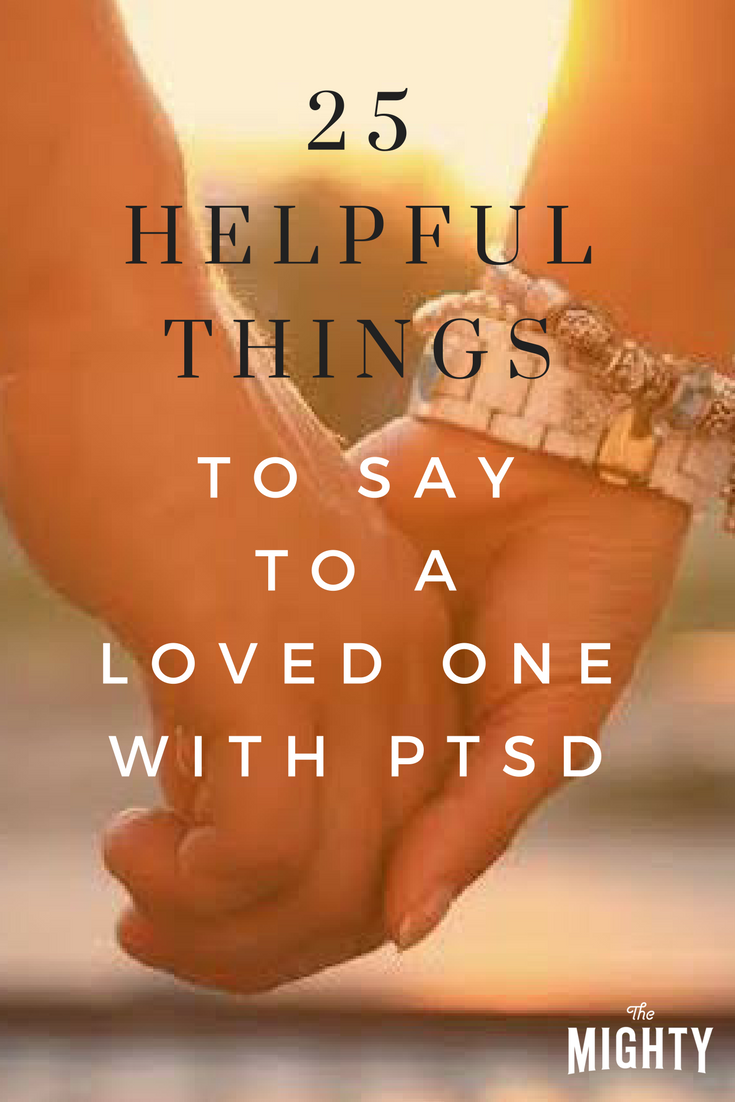This post was written by Jenni Schaefer for Eating Recovery Center.
“I understand,” some well-meaning friends and family said to me when I told them I was struggling with post-traumatic stress disorder (PTSD).
• What is PTSD?
Really, do you? I wondered, a bit agitated. I must admit, my PTSD and irritability can go hand in hand. Yes, I was annoyed, but I also felt invalidated.
Did they truly know what it was like to feel like your brain has been hijacked, stuck in the past, living in constant fear and to be oh-so-exhausted — and depressed?
No, they probably didn’t —and for that, I am grateful.
While I wish no one would ever have to endure the effects of PTSD, for those of us who have struggled with it, one of the most difficult things can be this: people can have a tendency to downplay or deny that we even have PTSD.
“You don’t have PTSD. You are just having marital problems,” they might say.
I know our friends and family members mean well, but since it’s PTSD Awareness Month, I’d like to open up a dialog between those who struggle with PTSD and those who don’t.
Too often, when it comes to mental illness, we are afraid to say anything at all — we certainly don’t want to say the wrong thing.
I polled my Facebook community recently, asking those with PTSD what they wish they could hear from loved ones.
Here is a list of 25 helpful things to say to those who have PTSD:
1. “I see you’re in pain. It’s OK to feel this way.”
2. “Your symptoms make sense given what you’ve been through. You’re not broken, weird or hopeless. You are worthy of love and belonging.”
3. “It isn’t happening right now. You’re safe.”
4. “You are not alone. I’m not going anywhere.”
5. “I am a better person today because of your friendship. What has happened doesn’t define you.”
6. “You didn’t deserve that. Please know I’m here for you.”
7. “I don’t understand the signs and symptoms, but I believe you and I support you.”
8. “I am thinking of you. How are you?”
9. “I love you.”
10. “I’m on my way.”
11. “The worst isn’t happening again, even though it [may] feel that way. Keep breathing.”
12. “I’m sorry you feel like you can’t keep doing this, but I believe in you and your strength to keep fighting.”
13. “You are inspiring. Even if you don’t see it, the growth you’ve made is remarkable.”
14. “It’s OK to fall. I’m here to pick you up. Just take it step by step.”
15. “You might not believe it, but you can do this. These awful feelings will pass.”
16. “You’re not ‘crazy.’ Remember: everything you’re experiencing is completely normal for someone who has gone through trauma.”
17. “You survived. You’re resilient.”
18. “What happened to you really sucks. I’m sorry.”
19. “My heart aches for you. I am in tears with you.”
20. “We’re in this together. I’m on your side no matter what.”
21. “I’m here when you’re ready to accept care. In the meantime, please know I genuinely do care.”
22. “I’m sorry I wasn’t there for you and didn’t know how to help. I will do my best to be there and to never judge.”
23. “You matter. Your story matters and will help others in the future.”
24. “Do you want to just listen to music or do something fun?”
25. “If I could carry those memories with me for you, I would.”
Personally, it really helped me when people said, “It’s not your fault.”
But, a therapist once told me others sometimes need to reach that conclusion on their own. So, they may not relate well to those words.
If you’re still unsure of what to say, you could always ask your loved one, “What can I say or do to support you?” And — be honest if you have no clue what to say! Don’t be afraid to fumble on your words or to say something incredibly silly. PTSD is a very misunderstood illness; it is an illness you can’t plainly see.
I didn’t need my friends and family to see my PTSD. I didn’t need them to understand it. What I needed was for them to believe me and see me — apart from the illness. I needed their unconditional love and support.
I didn’t need loved ones to push or pull me into recovery. What I needed was for them to walk beside me. I needed them to meet me where I was. Sometimes, they stumbled in this place, but so did I.
It took a while, but finally — after falling down and getting back up again—we did it. And I made it through.
Jenni Schaefer is a bestselling author, popular speaker, and a National Recovery Advocate for Eating Recovery Center’s Family Institute. In partnership with Insight Behavioral Health Centers (877-737-7391), Eating Recovery Center (877-957-6575) provides specialized treatment for eating disorders as well as related disorders, including PTSD.
Thinkstock photo via iStock.


